‘Braintaining’ in retirement: Use it or lose it
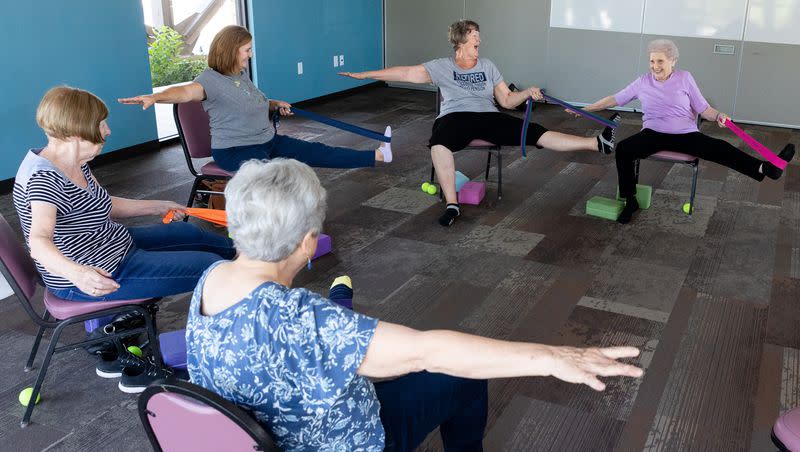
Mark Birdsill “double retired” from careers in the Army and in informational technology. He says he was burned out. After serving in Afghanistan, he bought five acres of land in rural Idaho near a friendly little town, Spirit Lake.
But if you think he’s whiling away retirement napping and fishing, you’d be mistaken. Birdsill, 55, is busier than ever. He’s writing a novel he hopes will be the first of many. He’s learning Russian to go with his German skills. Because he manages his own stock portfolio, he spends a lot of time keeping up with world events and gets his news from both traditional sources and social media. He’s a volunteer who’s helping a convent get its website back online.
In his “spare” time, he bakes his own bread and loves to experiment with food recipes. He rides his motorcycle a lot, noting that “it seems writing and motorcycles are therapy for a vet.” He’s heading off to Iceland soon because he’s always had a hankering to see Reykjavik.
For a while, Birdsill pondered opening his own business, so he took part-time work at a diner and bar to learn the ropes. He decided he would lose his free time, gain some worries and “risk throwing myself into it and not have a life again.” He still sometimes works the door there, though, because he likes the people.
Birdsill could be a — perhaps hyperactive — poster boy for what retirement is supposed to look like if you want to stay sharp mentally after you leave your job behind.
Volunteering, working, providing care to someone and engaging in joy-inducing activities are all good for the brain and help maintain mobility, says Caitlin E. Coyle, director of the Center for Social & Demographic Research on Aging at the University of Massachusetts Boston. She says “connecting to our purpose” should be a huge goal for retirees. Purpose provides better quality of life.
Research repeatedly shows that “use it or lose it” is not just a catchy phrase when it comes to brain function as people age. An international array of studies show putting off retirement delays risk of cognitive decline. Research from France in the European Journal of Epidemiology found “strong evidence of a significant decrease in the risk of developing dementia associated with older age at retirement.” A 2020 Swedish study of more than 63,000 people published in the journal Geriatric Psychiatry echoed that. Those are just two of many studies finding mental decline can occur in retirement if folks aren’t proactive.
But gerontologist Anne Asman, program manager at Huntsman Mental Health Institute’s geriatric psychiatry clinic, says many retirees have not thought enough about what they want to do when they retire. They haven’t figured out their next goal in life or what matters most to them.
The result, too often, is a slide that includes physical, mental and social aspects of life, from depression to ill health to boredom — or worse.
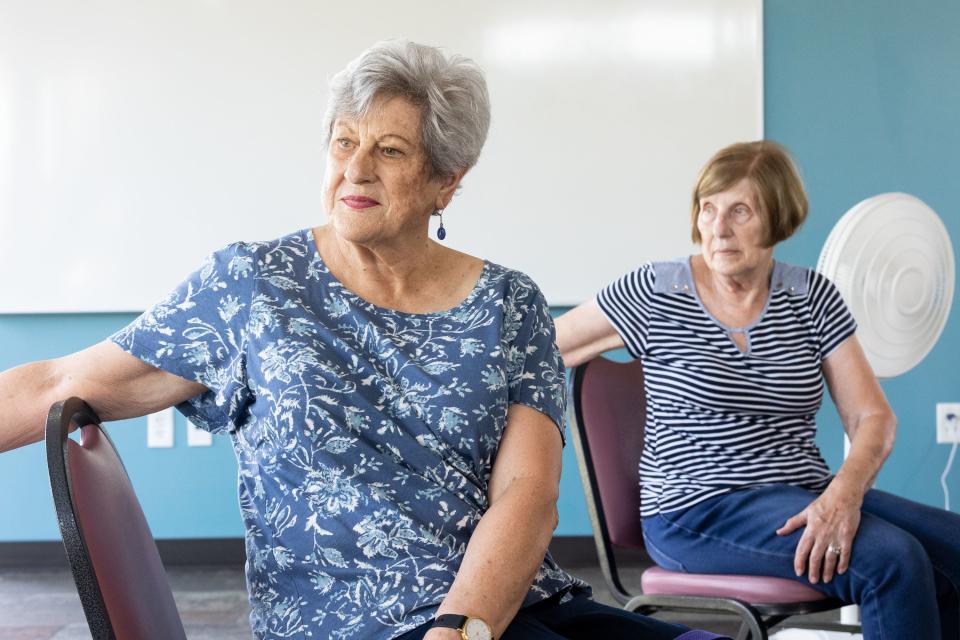
Perception and a plan
How well people fare in retirement is largely a matter of approach — and the impact of a positive or a negative perspective can be measured, Asman told the Deseret News. Those who don’t like how their life is progressing and who feel negatively about aging have 7.5 fewer years compared to those with a positive view.
Retirement can be a source of joy and an opportunity to try things you didn’t have time for — or a door leading to loneliness and mental decline. Experts say retirees can choose the path. The right road, they say, includes physical activity, mental challenges, social connections and a hankering to keep learning even — or especially — when it’s hard.
“It’s interesting, isn’t it, how retirement, a period of life we anticipate to be filled with relaxation and joy, can often lead to a drop in mental acuity?” says Phillippa Quigley, a certified health and wellness coach in Denver who writes for Soma Analytics and runs a women’s wellness clinic.
She recalls a retired school teacher who became one of her clients. The woman struggled with ennui after retirement, Quigley said. So the two of them worked on new habits and hobbies, including puzzles and mind games, then more complex activities like learning a language and taking up gardening, “which is surprisingly stimulating!” Quigley notes.
Asman can’t figure out why people are so reluctant to plan for retirement and life’s late stage. “This is the time that probably should have the most future planning,” she says.
She believes the first step is deciding what’s most important to you. Spending time with grandkids? Cleaning out your house and sending the gifts where they should go while you can? Traveling? Learning to play piano or ride horses?
Most of the time, what’s important involves other people — though not always. Asman’s own father-in-law wanted to travel, which her mother-in-law hated. He did that and his wife stayed home and did art projects “and they were very happy,” she says.
In interviews with experts, key themes — bits of life advice, really — emerge. To avoid cognitive decline in retirement:
Learn new things.
Stay physically active.
Manage stress and be mindful.
Nurture social connections.
Get high-quality sleep.
Mind your nutrition.
Avoid bad health habits like smoking or substance misuse.
Do for — and with — others.
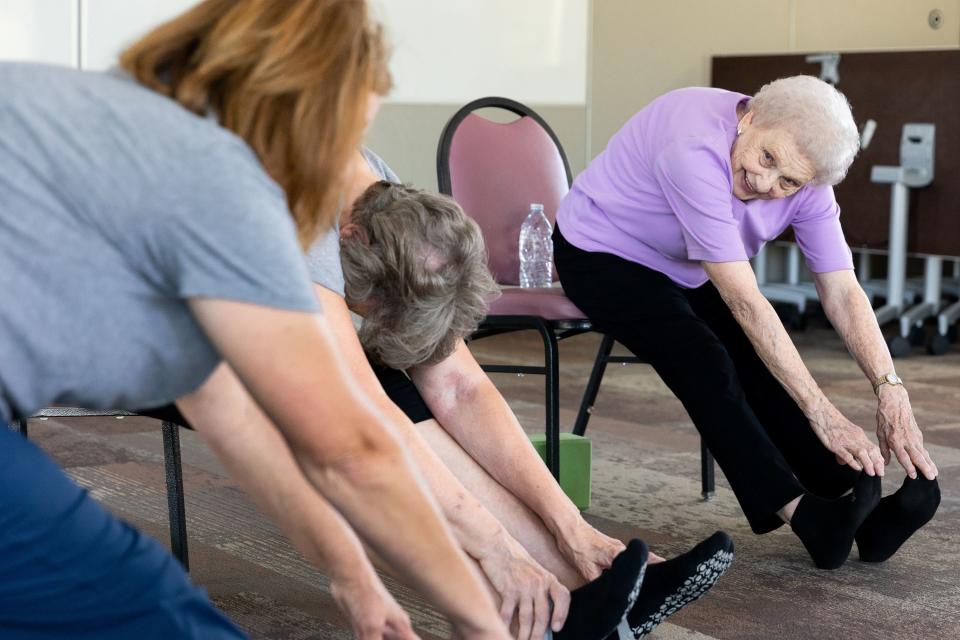
Neuroplasticity
The brain has an amazing ability to adapt and change, to learn new things, to compensate for injuries and to heal. The more the brain has been used and built up, the less likely it is to decline in retirement. But building it up should be a process that doesn’t end when one stops working — or start, either.
“Braintaining” should be a lifelong pursuit.
Even doing ordinary things differently — taking different routes home or brushing your teeth with your nondominant hand — can protect and even improve cognitive function and stop degeneration related to age. “Novelty” reinforces learning and boosts neuroplasticity, according to research published in Progress in Brain Research.
Learning new things — especially challenging things, like a language or playing a musical instrument — are power moves in maintaining one’s brain. People who are lifelong learners have more neurons that can be called to duty if something goes wrong in other neurons.
“The more active neurons one has, the better a person can deal with some deficits or challenges,” says Asman. “It’s a reserve. And the only way you can get them is to build them up through the use of your brain in learning new things. That’s why I’m a huge proponent of lifelong learning for older adults.”
Retirees the Deseret News talked to suggest taking classes or workshops that align with one’s passions or that introduce unfamiliar subjects. They extol reading of multiple genres and mediums, as well as joining book clubs and discussion groups. Says retiree Matt Marshall, reading builds knowledge, but also improves vocabulary, critical thinking skills and memory.
Sean Marchese, a registered nurse in Orlando who works for The Mesothelioma Center, has a background in Alzheimer’s clinical trials, a master’s degree in medical sciences, and 20-plus years caring for patients.
“Retirement is an excellent opportunity to continue engaging your mind and staying sharp,” he says.
He, like other experts, told the Deseret News that maintaining an active social life is vital during retirement to stay mentally sharp. “Seek social opportunities, join clubs or community groups, and stay connected with friends and family. Social interactions can enhance mental stimulation, provide emotional support and promote well-being,” he said.
Technology can be valuable for mental stimulation, he added. “Stay updated with the latest digital advancements, explore educational apps, and connect with online communities focused on your interests. Technology offers opportunities for learning, creativity and social connection, all contributing to cognitive vitality.”
Coyle says learning new things doesn’t mean giving up what already mattered. “If you’ve already been an artist or a runner, that can serve you. But being open to new things is important. Maybe run with a group or take trails instead of roads, exploring new interests because you have the time or space to do so.”
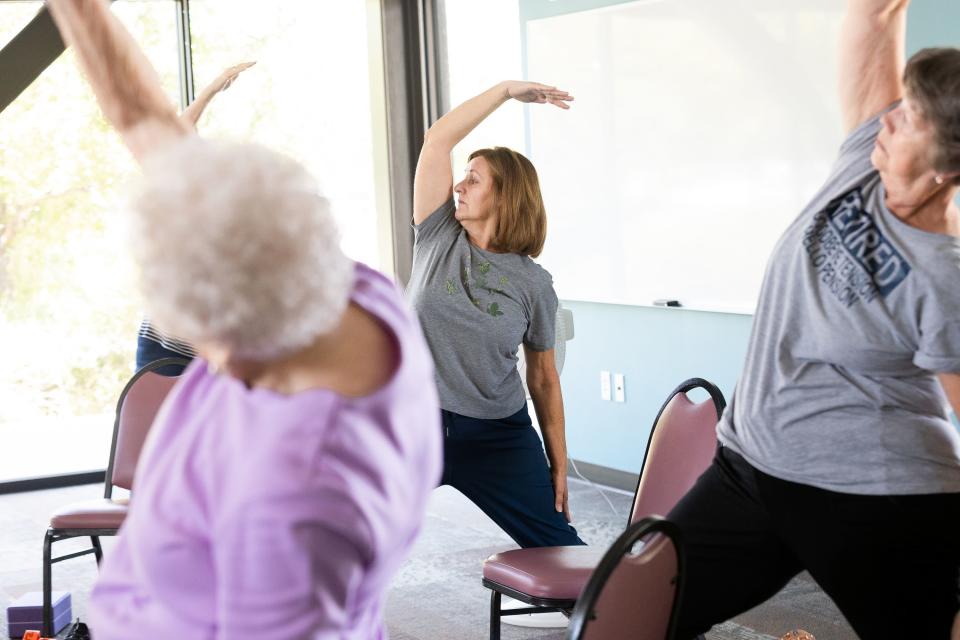
Working on longevity
Recently, at the Midvale Senior Center run by Salt Lake County Aging, volunteer Daline Rostron was leading a group of women through chair yoga exercises. They started with relaxation and breathing techniques, which deceptively made them look sleepy. That notion was dispelled within minutes as they stretched and shrugged their way through a series of shoulder rolls and lunges, as well as balancing movements that had them on their feet a lot, too.
The oldest in the group, Joyce Jackson, 92, says she’s also been doing tai chi for more than 20 years to stay limber. “You need to move your body.”
Her “classmates” this quiet Friday — Sharron Lovato, 80; Suzanne Butterworth, 70; and Pam Sadler, 77 — offer similar rationale. Sadler’s physical therapist told her “motion is lotion” to joints and stiff muscles and she’s found that to be true. Butterworth, who sports a T-shirt that reads “Retired. Goodbye tension, hello pension,” says loving yoga is the only reason she needs. But the women all mention, as well, how much they enjoy the social aspects with friends old and new. They like seeing each other.
It’s a small group today, says center program coordinator Kim Rasmussen, because it’s the Friday before a holiday. Still, by the time the class ends and some of the women head upstairs to play pickleball, there’s already a fairly long line of men and women awaiting their turn on the court, where a good-natured match between two couples is underway.
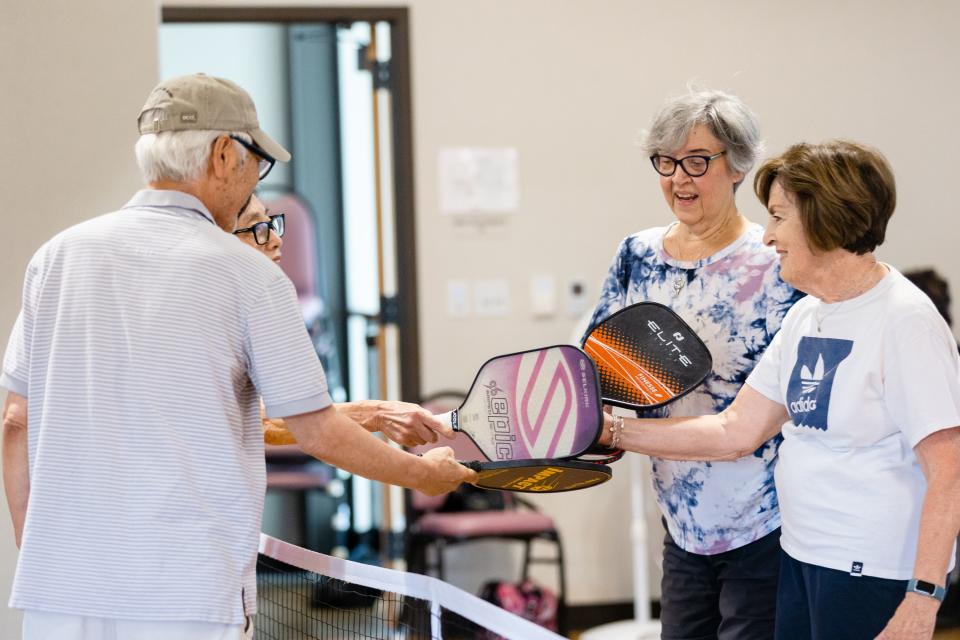
Exercise is huge for building and maintaining the brain and developing neuroplasticity. As the Deseret News has reported, research suggests that 150 minutes of exercise a week can even help stave off dementia. And you don’t have to run a marathon. Ten minutes of activity that gets your heart rate up several times a day will do the trick.
Tai chi and yoga have been recognized as strong activities that are both mental and physical and boost longevity.
“Yoga postures fire neurons in the brain that boost spatial awareness and muscle memory and a routine regimen can boost your memory and mood,” says Saad Alam, co-founder and CEO of Hone Health, an online men’s health platform. “Additionally, daily use of your feet in consistent yoga practice can strengthen the main muscles in your feet which exceed 100. Achieving a sound mind and a sound body are the ultimate goals of yoga and this balance is key to your overall energy, spirit and mental and physical health, especially as you get older,” he notes.
Lifeline says tai chi is slow enough and gentle enough for even those managing chronic conditions. “It offers the benefits of flexibility, muscle strengthening and endurance training,” while requiring mental focus that is brain-strengthening, too.
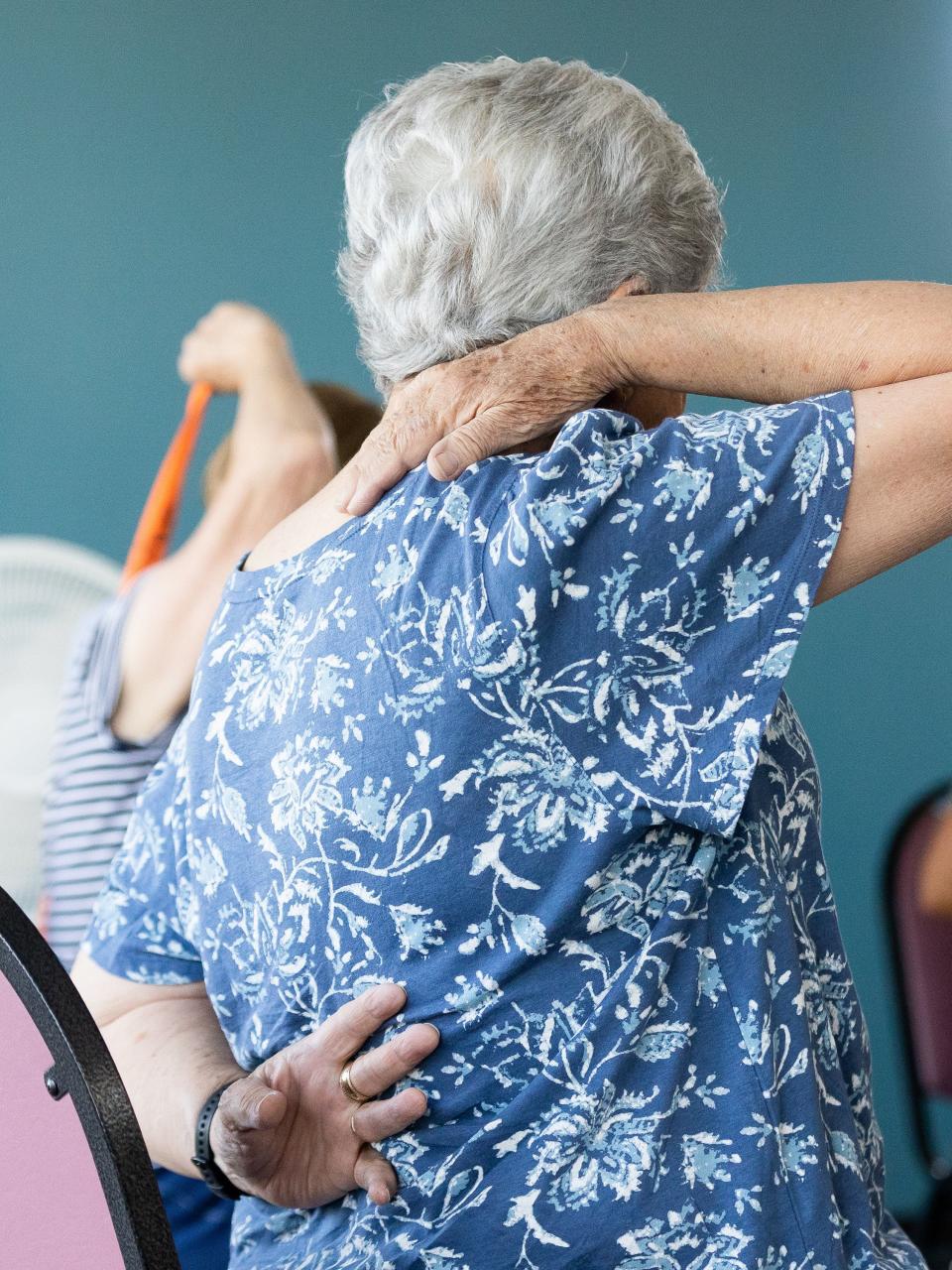
Take some time
Coyle suggests people stay active and give retirement a year before they make huge changes. She thinks people typically drift for about a year, then find their footing. They know by then what retirement’s like and can consider what they’d like to change.
Her second piece of advice is to be engaged. She points out that retirement brings with it a level of social freedom most people haven’t had since they were 18. There’s a lot to rediscover, including maybe some social skills they let get rusty. Work typically provides a lot of what she calls micro interactions that may be missed in retirement. “People need to find other interactions that are reminders they are part of a larger community,” says Coyle.
She also believes some adults, around retirement, are fearful “because a capitalist society like ours tends to equate work with worth, which makes people afraid to stop working and maybe more prone to associate retirement with death or frailty.”
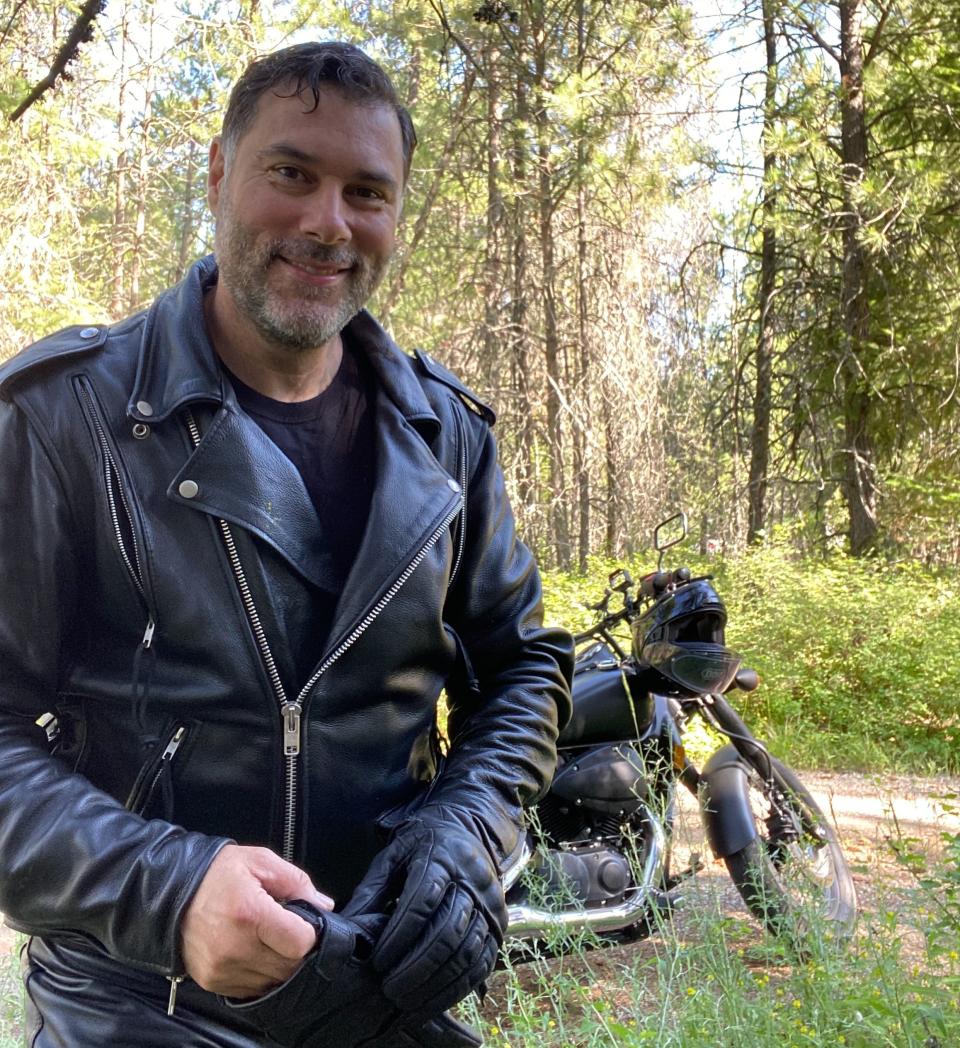
Birdsill spends a lot of his time in rural Idaho thinking about what he wants his coming years and decades to yield. He contemplates, he said, his place in the universe.
“Perhaps the idea is to plan and work to a retirement that allows you to spend time pursuing your own interests just as hard as serving the interests of your employer,” he says.
Time for you.

